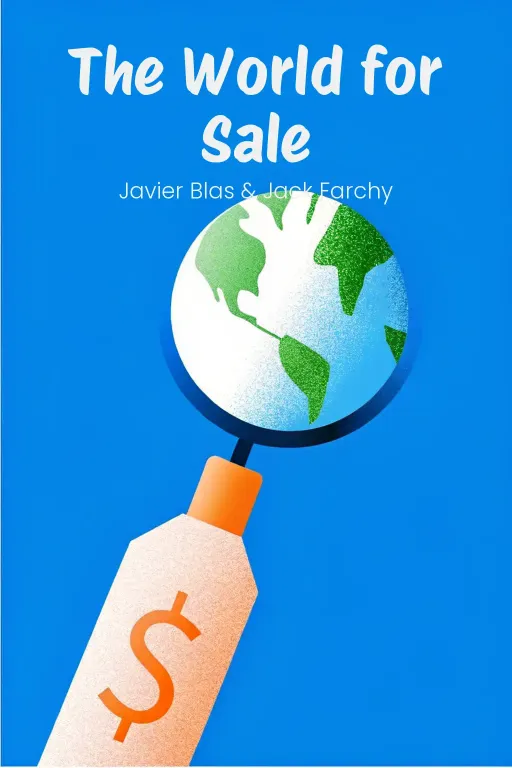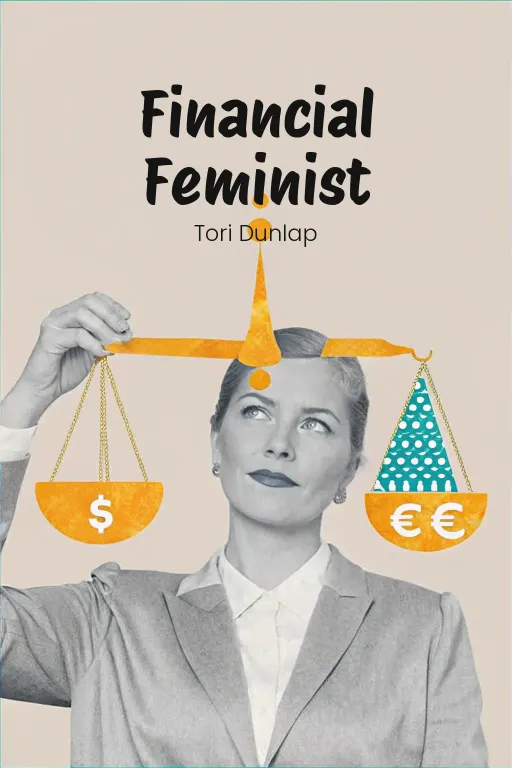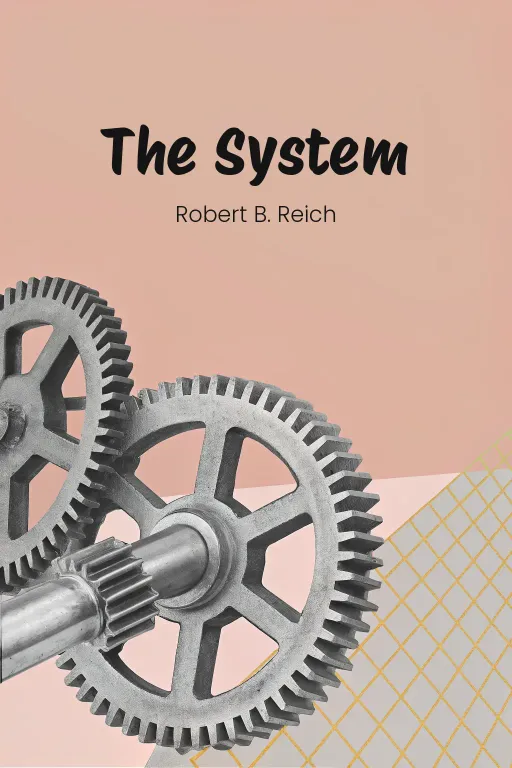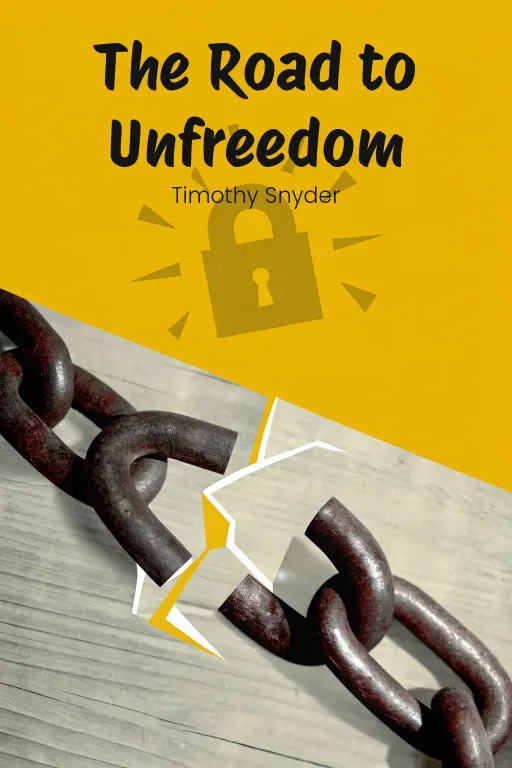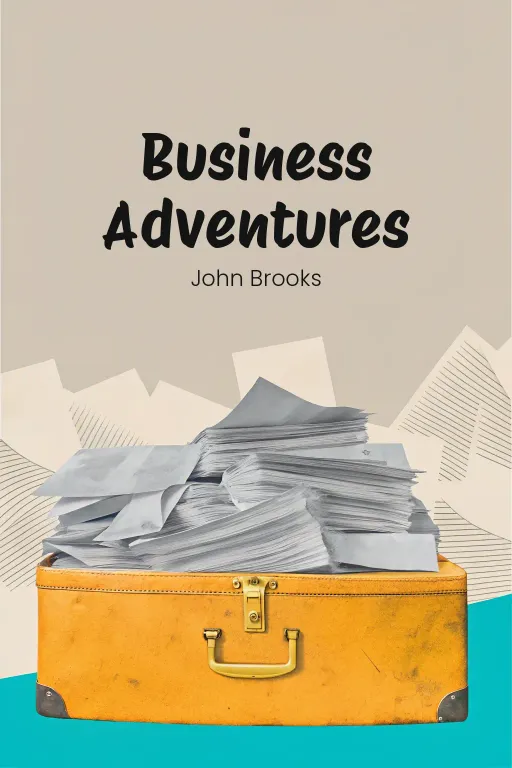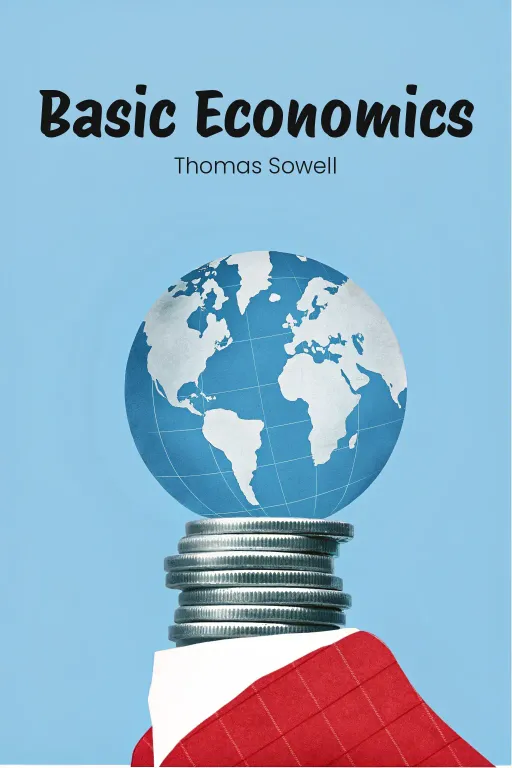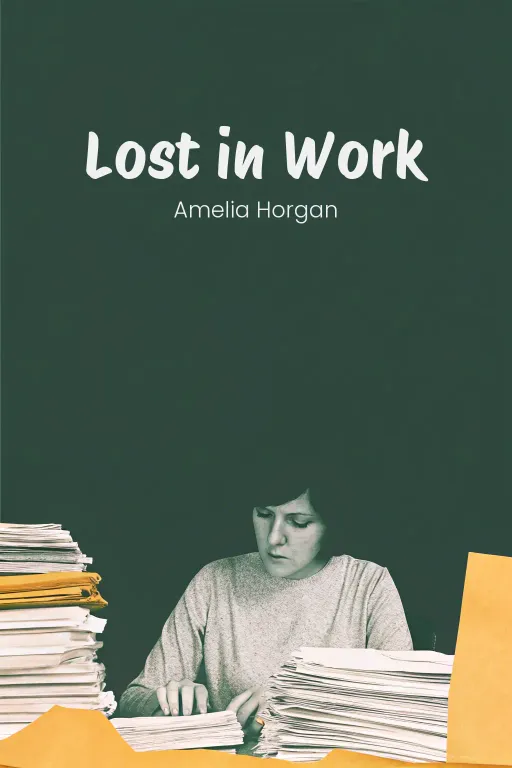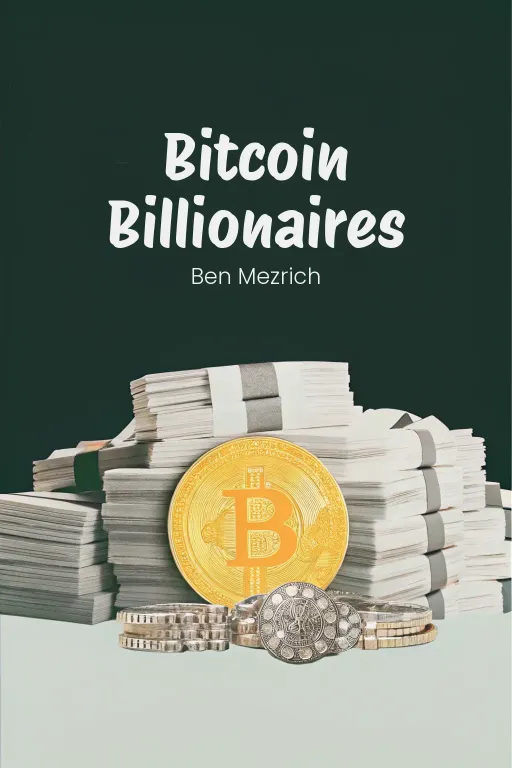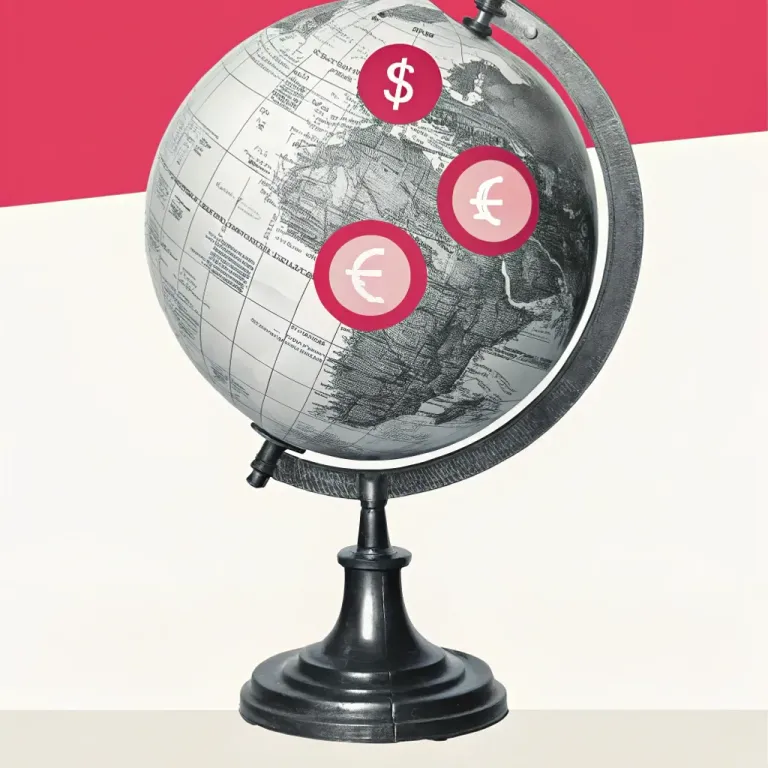
Profiting off Global Chaos: How?
Podcast by Let's Talk Money with Sophia and Daniel
Money, Power and the Traders Who Barter the Earth's Resources
Profiting off Global Chaos: How?
Part 1
Daniel: Hey everyone, welcome! Today, we're pulling back the curtain on a really influential, yet often unseen, force in the global economy: commodity traders. You might not know the names, but honestly, their impact touches pretty much everything – from the price of gas to what's on your dinner table. Sophia: Yeah, because when I'm at the pump watching the numbers spin, I'm totally thinking about the shadowy figures pulling the strings. Daniel: Well, you're not far off! These commodity traders, especially as detailed in Javier Blas and Jack Farchy’s book, The World for Sale, they’re like the invisible architects of global markets. We're talking about figures like Sophia Rich, who basically created modern oil trading, and huge companies like Glencore, Vitol, and Trafigura. They’ve really shaped not just the markets, but also geopolitics. Sophia: “Shaped” might be too gentle a word. I've heard they're comfortable operating in ethically ambiguous zones, turning global events – like wars, political instability, and famines – into lucrative opportunities. Daniel: Precisely! So, in this episode, we’re going to explore three main areas. First, we'll look at the origins of these empires and the larger-than-life personalities who built them. Then, we'll dig into some of their most controversial deals—the Arab Spring, the chaos after the Soviet Union fell, and those massive corruption scandals in Africa. Finally, we’ll tackle the ethical questions they face today. Are they just taking advantage of the system, or is there more to it than that? Sophia: Sounds like we're exploring a world where ruthless ambition wears a power suit instead of a pirate hat. Alright, let's see how deep this rabbit hole goes.
The Hidden Power of Commodity Traders
Part 2
Daniel: Okay, let's zoom out for a second and look at the big picture – how this whole commodity trading system even got started. After World War II, the world was in a state, right? Countries desperately needed resources – food, fuel, metals – to rebuild. Commodity trading wasn't just some business back then; it was practically a mission to help nations get back on their feet. Sophia: So, if I'm hearing you right, these traders were like post-war superheroes, swooping in to distribute resources? I'm guessing they took a “handsome” commission for their troubles, right? Daniel: Well, they weren’t exactly doing charity work, let’s be real. But here's what's really interesting: they basically invented the methods that helped stabilize the markets. Have you ever heard of forward contracts or hedging? Sophia: Vaguely. I think I've seen them mentioned in movies about finance where everyone loses all their money and ends up in jail. What do those terms actually mean? Daniel: Forward contracts were agreements where you'd buy or sell a commodity at a pre-agreed price in the future. This protected both the traders and the buyers from unpredictable price changes. Hedging, on the other hand, was like buying insurance for your investments. Put them together, and you could navigate the crazy markets without going bankrupt. Sophia: So, we're talking seriously innovative financial tools here. Who was the brains behind all this? Daniel: Traders like John MacMillan Jr. He understood how food security and post-war recovery were linked. By structuring agricultural trade, MacMillan ensured countries had access to the resources they needed. He wasn't just trading for profit; he was essentially stabilizing entire nations. Sophia: Alright, so he's the initial "good guy" in the story, trying to balance profit with a bigger purpose. But then things get complicated, right? Let me guess: that's when Sophia Rich enters the scene and shakes everything up? Daniel: Exactly. Fast forward to the 1970s, and Sophia Rich throws out the rule book. During the oil crisis, he bypassed U.S. embargoes by trading directly with countries like Iran, which was often off-limits. He was a risk-taker, and he basically invented the spot market – buying and selling oil for immediate delivery. Sophia: Let me guess. Making a “lot” of enemies and a “lot” of money in the process? Daniel: Precisely. Plus, he played a significant role in reshaping global oil logistics. For example, he supported the construction of the Eilat-Ashkelon pipeline in Israel, which bypassed critical geopolitical chokepoints like the Suez Canal. Suddenly, he could move oil faster and more efficiently than anyone else. Sophia: So, on one hand, he's resolving logistical challenges, but on the other, he's operating outside the system. Wasn't he eventually declared a fugitive? Daniel: He was. Rich was accused of tax evasion and trading with embargoed nations, becoming one of the most infamous figures in U.S. legal history. But, remember that controversial pardon from President Clinton that we mentioned earlier? Sophia: Oh yeah, because what says "complicated legacy" more than getting out of prosecution through a political Hail Mary? It feels like these stories are a constant balancing act between economic needs and, well, morally murky areas. Daniel: Absolutely, and talking about ethical problems, let’s discuss how traders facilitated some geopolitical crises. When the Soviet Union collapsed in the 1990s, it was a goldmine for the folks in this business. When the Russian market opened up, it was basically the Wild West. Companies like Glencore came in and took advantage of the chaos, buying metals and oil for dirt cheap prices. Sophia: Wait, so while the Russian people were struggling with this new system, these traders were essentially looting the country disguised as "business"? Daniel: You could definitely frame it that way. Glencore, for instance, partnered with local oligarchs, securing crucial supply chains. Meanwhile, the Reuben brothers moved into metals trading, quickly dominating major commodities. It was mayhem, sure, but for them, chaos equaled opportunity. Sophia: I wonder, at what point did these traders influence the crises they were profiting from? Were they enablers as much as opportunists? Daniel: It’s a tough question. And it gets even murkier when we look at things like the UN's Oil-for-Food Program. It was supposed to be a humanitarian effort to help Iraq, but it ended up becoming one of the biggest scandals in trading history. Traders used the system by making these shady deals with Saddam Hussein, raking in millions. Sophia: Let me guess – it wasn't just traders benefiting. There's always a political leader or two involved. Daniel: Of course. Saddam was smuggling oil out at incredibly low prices, sharing illegal kickbacks with intermediaries, major trading firms included. Meanwhile, the Iraqi people, who were supposed to benefit from the program, barely received any aid. Sophia: Here we are again: profit over people. History repeats itself. At what point will the industry say, "Maybe this isn't worth the social cost"? Daniel: That's the multi-billion-dollar question. We’ve seen this play out in oil and in food markets. During the 2008 food crisis, speculation drove prices sky-high for essentials like wheat and rice. Traders hoarded supplies, which artificially drove up shortages, that then sparked riots around the world. Sophia: Wow. Trading food during a global crisis…that’s pretty dark. And the crazy thing is, we’re still dealing with this today, right? Commodity speculation is still happening. Daniel: Absolutely. The market has become even more financialized with derivatives and other complex instruments. It has made things more unstable. Oil prices spike because of sanctions or political issues. Often that’s because of traders betting on the outcomes and making the price swings even bigger. Sophia: It's a real cycle, isn't it? The traders are making the most money off of the volatility, but who actually ends up paying the price? It's just average people who can’t afford the high costs of gas or food. So where is the accountability in all of this? Daniel: That’s where we get to the current state of affairs. Regulators are paying more attention. But, these traders are so involved in global supply chains that fixing the problem is a serious challenge. They're not just participants, but designers of the world economy.
Conclusion
Part 3
Daniel: So, summing it all up, commodity traders? They've really been shaping our world in ways most of us just don't see, you know? They've gone from being these post-war market stabilizers to these really influential powerhouses, kind of operating in the shadows. From Sophia Rich rewriting the rules of oil trading, to firms just, well, profiting off geopolitical chaos, it's pretty clear these traders aren't just reacting to global crises—they're often driving them. Sophia: Right! And they've blurred every single line between innovation, exploitation, and outright scandal in the process. I mean, whether it's oil-for-food schemes, post-Soviet opportunism, or spiking food prices during, you know, global crises, these guys have mastered turning disruption into massive income. Daniel: Exactly! But the big question is at what cost? These traders have basically become the architects of the global economy, but the rest of us are left footing the bill, whether it's through higher prices or, you know, environmental damage. Sophia: And let's just be real, holding them accountable isn't going to be easy. They operate in the cracks of the system, where regulations are weak and, of course, the profits are strong. Daniel: Right, right. Ultimately, we need to remember that these markets—as complex as they are—aren't beyond scrutiny. Transparency, regulation, and even just public awareness might be the first steps toward tipping the balance back in favor of people, not just, well, massive profits. Sophia: So, food for thought: The next time you see a spike in gas prices, food shortages, or a geopolitical mess, it might be worth taking a moment to wonder who’s sitting behind the trading desk, quietly, very quietly, profiting. Daniel: And maybe, just maybe, we’ll start asking the right questions about the systems we depend on. Thanks for tuning in, everyone, and we’ll catch you next time. Sophia: If we’re not all broke from having to fill up our gas tanks!
